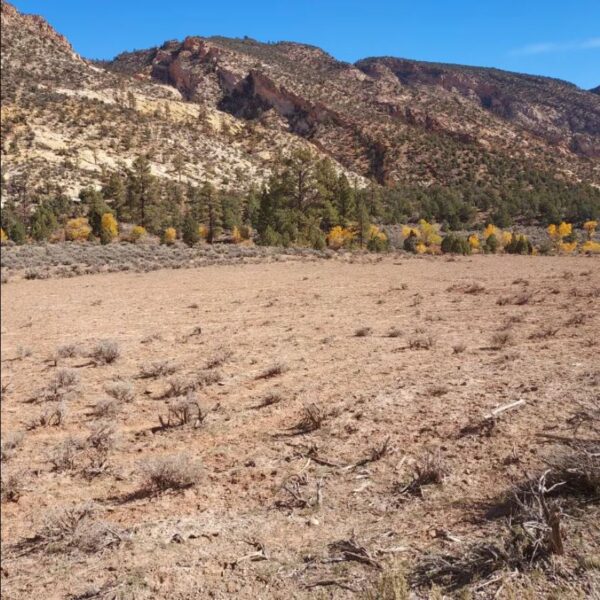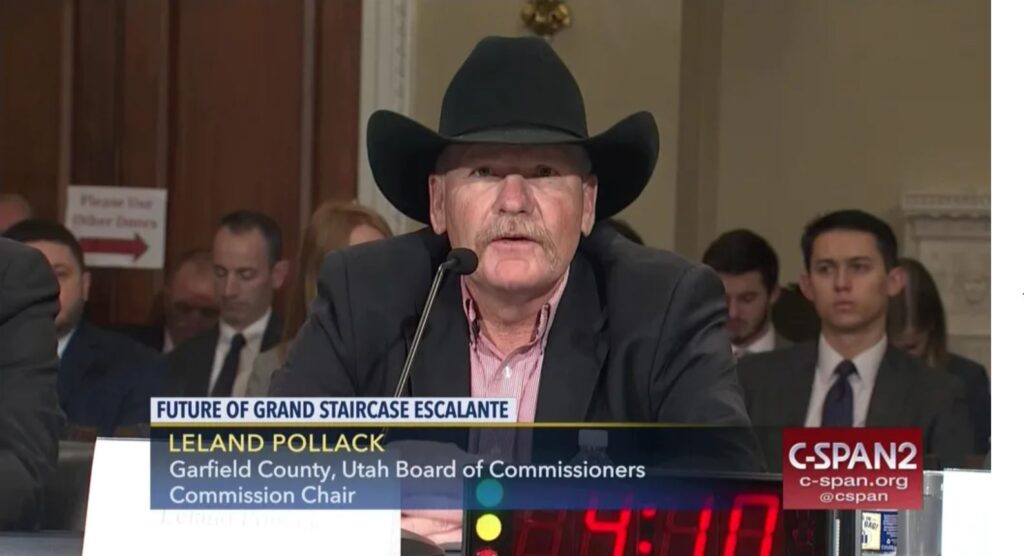Last Thursday the Escalante PTA organized a literacy program promoting youth writing. Lit Jam, as it’s called, was attended by over 50 Escalante students from 5th through 8th grade. The keynote speaker was award-winning author Johan Twiss.
The conference also featured presentations from other writers.
And me. Except, I’m an accountant, not a writer.
In a civilized, complex society, literacy is extremely important. When we talk about literacy, we’re talking about people being able to gain new knowledge through reading, and also being able to share knowledge and ideas through writing.
Careers in Writing
It is good to have youth gather around and hear from actual writers on literacy topics, such as at LitJam. But holding a conference like this is not without risks. For example if a conference doesn’t explain the broad importance of literacy in general life, students may get the wrong impression that literacy is only required for those pursuing careers in writing. For the rest of us, it seems irrelevant.
Careers in writing are few. It turns out that of the few kids who go to college seeking an English degree, even fewer of them will actually find English-related jobs.
In 2019 Bankrate analyzed data from the U.S. Census Bureau’s American Community Survey and compiled a list of 159 college degrees. They then ranked them from most valuable, to least valuable. “English Language and Literature” was ranked 121 on this list, which is pretty friggin’ lousy.
“Visual and Performing Arts” came in dead last at 159. No surprise there. RIP, my cello skills. Lots of cello grads out there, but only one Yo Yo Ma.
Literacy for the Rest of Us
Fortunately most of our youth will not choose English Lit as a major, but will instead find a more gainful field to study. So does literacy matter to them? Yes!
Literacy is the ability to learn from reading, and to share through writing. This literacy leads to good communication and even helps you speak better. Literacy can make you successful in any career.
When we learn language in our earliest years, our very language wires our brain to think a certain way. In other words we think in the words of our language. When you have a good command of the language, this aids how you think. You are able to organize your thoughts better.
When your thoughts are organized, you can speak and write more effectively. You can speak and write in order to teach, entertain, and inspire. Literacy will even help you argue better, and make you more persuasive.
Surely the appeal of being more effective at arguing should be an attractive skill for everybody, especially our teens. But when I speak of arguing, I’m not talking about fighting with words — I am talking about persuading. I am talking about arguing as a means to find the truth — somewhere between your point of view, and theirs.
Writing as an Accountant
As an accountant I have learned a specific body of knowledge that puts most people to sleep. Yet the financial realm is pretty important to anyone trying to make a living, so people ask me questions all the time.
It is not enough for me to be competent in my field: I also need to be able to share it with others in a way they will understand so they can make important decisions in their lives.
I have improved in my communication skills a lot over the years — starting with a debate class in high school, an LDS mission in Canada, and later as a professional in my field. Most of the biggest opportunities I have had in my career have been a direct result of my ability to communicate effectively to my employers and clients.
Communication has been essential in other fields I’ve been in — from personal skills at the hotel front desk, to counseling troubled youth. Even as a young landscaper I had to approach my boss and negotiate with him why I should be getting $5.50 an hour.
The Court of Public Opinion
These days, America is ideologically split almost evenly between conservatives and liberals. Yet today’s media leans considerably more to the left than the public it writes about. This is confirmed by AllSides, an organization that rates the political biases of media outlets: the left side of the spectrum is crowded with media, with gaps prominent on the right. This is probably why Fox News has had such great success! Beyond its merits, it simply has fewer competitors to share its market with.

We normally start out trusting the news — that is, until it starts to report on something close to home. When the news reports on something we personally know about, we see that the news contains a lot of BS. Most of that is because journalists really don’t know, but increasingly common nowadays is media’s tendency to deliberately mislead.
Misusing the Power of the Pen
“The pen is mightier than the sword,” wrote Edward Bulwer-Lytton in 1839.
Journalists, with the power of the pen, know they wield great power to win wars in the court of public opinion. People rely on their stories to know who is good and who is evil. But many journalists and activists have taken too much license in misleading the public — because in their eyes the end justifies the means. They feel justified in exaggerating. To them, fighting for a certain cause can be more important than truth itself.
I tried to show Escalante’s students this disconnect between what journalists say, and what we know. Because I was presenting to a group of youth, I picked a topic most of them are already familiar with: grazing and the use of public lands. I also wanted the students to see what others were writing about us.
Journalists on Public Lands
Last November the Wildlife News journalist George Wuerthner wrote a scathing piece titled, “Rancher Vandalism on the Dixie National Forest Utah.”
“I recently spent a few days on the Dixie National Forest in southern Utah,” Wuerthner wrote. “One of the defining characteristics of the forest is that nearly all the acreage that is not a cliff or inaccessible canyon is used for cattle grazing. And without exception, almost all allotments are overgrazed and abused. Nearly all the allotments I visited were grazed down to golf course height or even bare dirt.”
“What I saw is essentially legalized vandalism,” he continued. “This ecological damage is much more severe and long-lasting, yet the Forest Service does nothing to preclude it.”
Why Do We Care?
I picked this piece for the students because it covered their home turf. The article included two photos of Lower Box Trailhead, a site most of our students are familiar with just a few miles north of town. Wuerthner captioned the first photo, “The nearly complete annihilation of vegetation by livestock vandelism [sic] seen here should result in the termination of any grazing privileges.”


The caption on the second photo assured readers that he didn’t just pick the worst spot to take a picture. “Here is another shot showing the near absence of vegetation,” he wrote. Except, both photos were of the same field, one looking north, and the other looking south from roughly the same spot.
I first heard about Wuerthner’s article from Chris Wehrli, District Ranger for Dixie National Forest in Panguitch. Wehrli thought the article was misleading, and said that Wuerthner had truly found the worst patch of dirt to photograph — which was an area that doubles as a cattle staging area, as well as trailhead parking.

“This Is What People Write About Us”
I found a number of similar stories written by out-of-state outlets critical of ranchers, residents of this region, as well as “the Mormons.” That leads me to believe that conservationists are more interested in Southern Utah counties than in other rural counties across the boring Midwest.
“This is what people write about us,” I told the students. “How accurate do you think they are?”
True, journalists and activists have great interest in what we are doing here because we are on “their” public lands. Their writing has a great effect on what the public believes, and it shows.
“get teh goddam cattle off our natinal land and let wild horses live there,” wrote Jean Public in one of my favorite scoping comments critical of the Monroe Mountain Grazing Authorization. “this is national land owned by 330,000,000 americans. we dont want this land turned over to robber baron cattle ranchers.”
Yeahhh! Take that Gleaves!
The Ranchers’ Kids
Earlier I showed how literacy was relevant not just for professional writers, but in other fields too, like accounting. But the “knowledge work” professions I gave as examples might not hit home for some of our youth. I had a number of students in the group who are closely tied to agriculture and especially ranching. What is literacy to them?
There are certain professions that seem uniquely remote from the need for literacy. We’re talking about professions far from the office, a desk or a computer. Jobs in agriculture are sometimes all-consuming and seldom leave enough time for workers to look up from the daily grind to see what’s happening.
Under Attack
Ranching certainly has been heavily criticized, and most cowboys instinctively know they are under attack — and not from a threat on the range. The threat is from somewhere else — in some office in a part of the country that has little idea of what is going on down on the ground. There is a disconnect between what ranchers know, and what conservationists know. And they don’t talk to each other much at all.
But while the cowboys are hard at work tending to cattle and raising kids, the conservationists are busy writing. Some organizations, like SUWA, have a heavy focus on litigation. Still others, the likes of Wuerthner, are busy swaying the public mind. How accurate that writing is, is up for debate.
I deliberately chose Wuerthner’s grazing example because I wanted to reach the youth of our ranchers. I wanted them to see the very real threat lurking out there in a world strange to them. We can’t let these youth write off the need for literacy because they think it’s irrelevant to their career path. These days, it has become essential.
Illiterate
Our kids know how to read and write. From this strict definition, they are literate. However, they may not be effective at either if you measure their reading and writing against the purpose of reading and writing, which is to gain and share knowledge. If they have literacy tools in hand, but don’t put them to beneficial use, are they truly literate?
The way I asked that question is not truly fair, since I changed the definition of the word literate. But the question on whether their literary tools are used purposefully is important.
In order to put literacy to work, our youth need to write, and create.

Research shows that teens spend an incredible amount of time consuming online content, but very little time actually creating content. The American Academy of Child & Adolescent Psychiatry reported in 2020 that on average, teens spent as much as nine hours a day using screens!
Creating Media Vs. Consuming it
Compare that to research by Common Sense Media, which reported that in 2019, teens were only spending an average of eight minutes a day creating art or music on a digital device, and only four minutes a day writing for pleasure. During the rest of their screen time, they are strictly consumers.

In spite of such volumes of consumption, kids are inherently creative and have historically spent a good portion of their days in creative projects — from craft-making to drawing. Christine Elgersma, writing for Common Sense Media, noted that if they are going to spend most of their waking hours on screens, they should be encouraged to engage in creative activities there too.
“Overall, they’re passive consumers of the content they love — which is fine,” Elgersma writes. “But with a little nudging — and the right tools — they can be using that time to build creative skills while sharing their stories, opinions, and ideas.”
Learning to Express Themselves
Elgersma then elaborates on age-appropriate media for them to express themselves in writing stories, creating art, composing music or filming. And if not on YouTube for the whole world to see, “there are tools that let kids record, edit, and share in a more limited way.”
At The Byway, getting youth to create content — both in writing and in art — has been a major component of our purpose. Since we’re in print regionally, this is a great opportunity and a good format for many of our youth to share with a local audience.
However the world is changing and we’ve seen that firsthand. Getting kids to pause consuming so they can create content has proven a challenge. We’ve also been disappointed that schools and faculty, although passively supportive of our objective, have not participated much. Outside a handful of superstars who have caught the vision, many faculty have not been able to add yet another good project to their heavy workload. Still some others have opted to keep writing only within the safe silo of academia.
Since our inception 18 months ago, we have always championed the content created by our youth. We believe in them, and although young, they are just as qualified to write as anybody. We still encourage them to submit their work to a paper — and around here, they’ve got options!
A Lost Media
Among so many genres of writing out there, I see a pressing need for people to write about what life is like down on the ground. This is important for youth and adults.
Ranching was the easiest example I could come up with to drive the point home for our students. In the meantime the media writes either what it wants, or what the activist wants because journalists don’t know what’s actually going on down on the ground. That’s because very few who are down on the ground are writing or speaking up. The media is lost, and it’s not just their fault.
We thought that since ranching is such a substantial part of our community here, we would get more writing from the ranchers sharing their perspective. So far we haven’t seen much if anything from them — and it’s not clear if we ever will. Part of this is their lack to time, and part may be their lack of confidence in writing or speaking up.
Write, or Be Written About
Regardless of the reason, the media slowly chugs along, painting the picture it wants. But it does so without the perspective of the very people they are writing about.
There is a great need in our society for writing to represent heretofore unrepresented groups, and that writing should authentically come from inside those groups. Someone needs to do it. We hope that such writing can be enlightening. But even clunky writing has greater value than none at all. It is up to you to write, or to speak, what you know is true.
Write, or be written about.
– by AJ Martel

Feature image caption: White House press secretary Sean Spicer speaks during a the daily briefing at the White House in Washington, Monday, June 26, 2017. Courtesy AP Photo/Alex Brandon.
AJ Martel – Escalante
AJ Martel is the youth coordinator at The Byway, but he is involved in most everything. He and his family live in Escalante, and they love it here! AJ has found Utah’s small towns quite inviting and under-defended, which is why he’s so involved with the paper. What AJ loves to do most, though, is serve his community. That is clear through everything he writes and does for Escalante, Utah.

